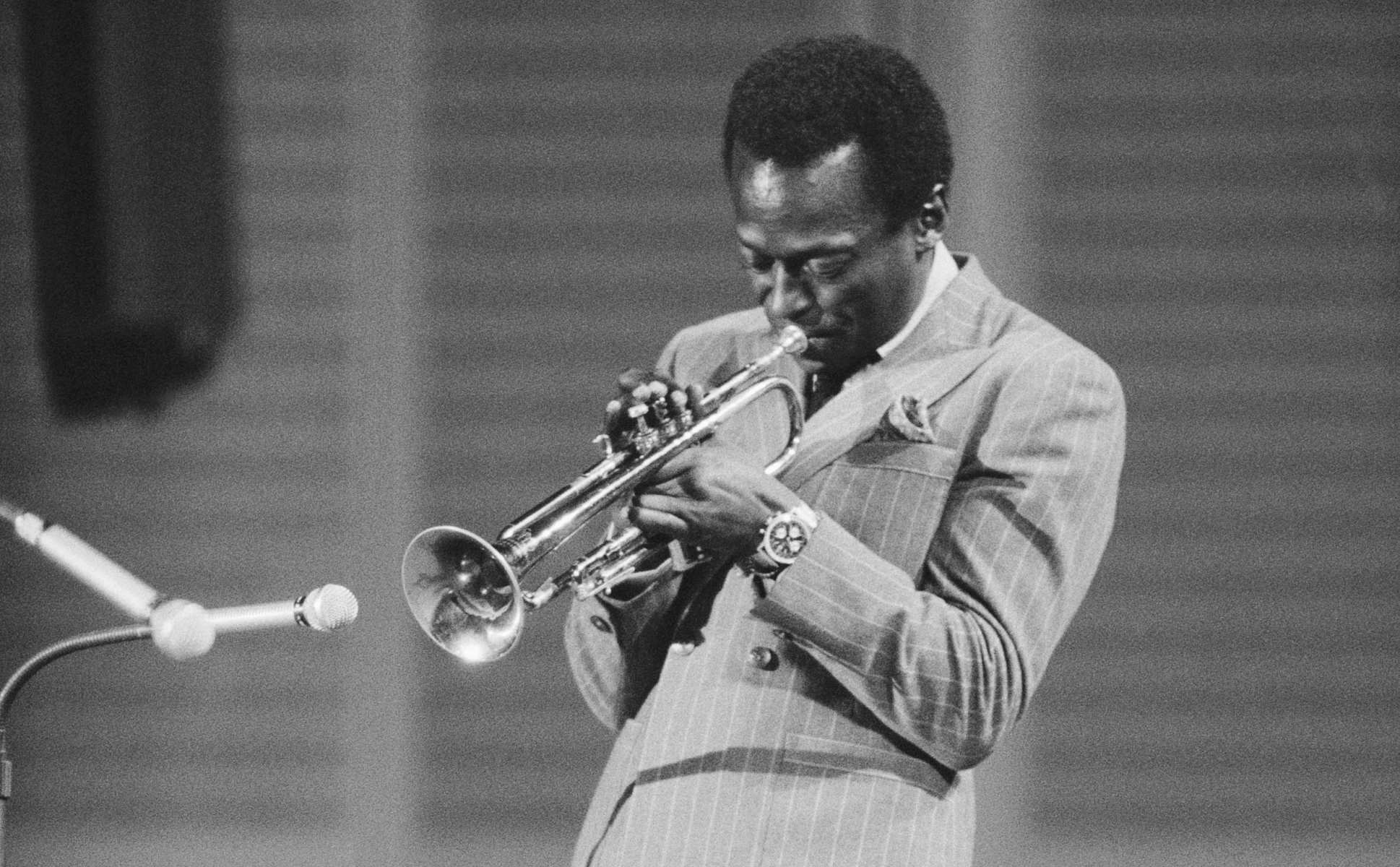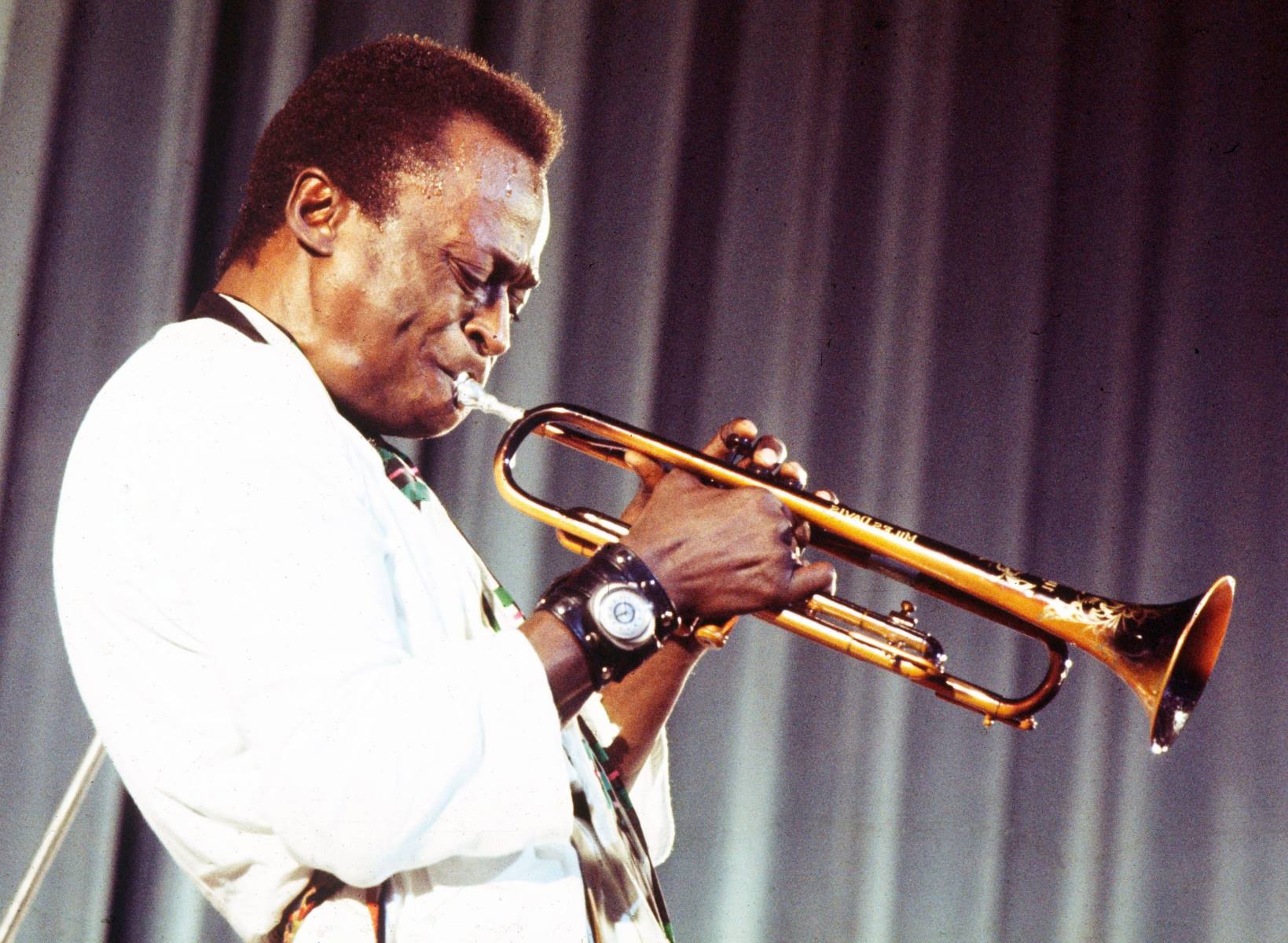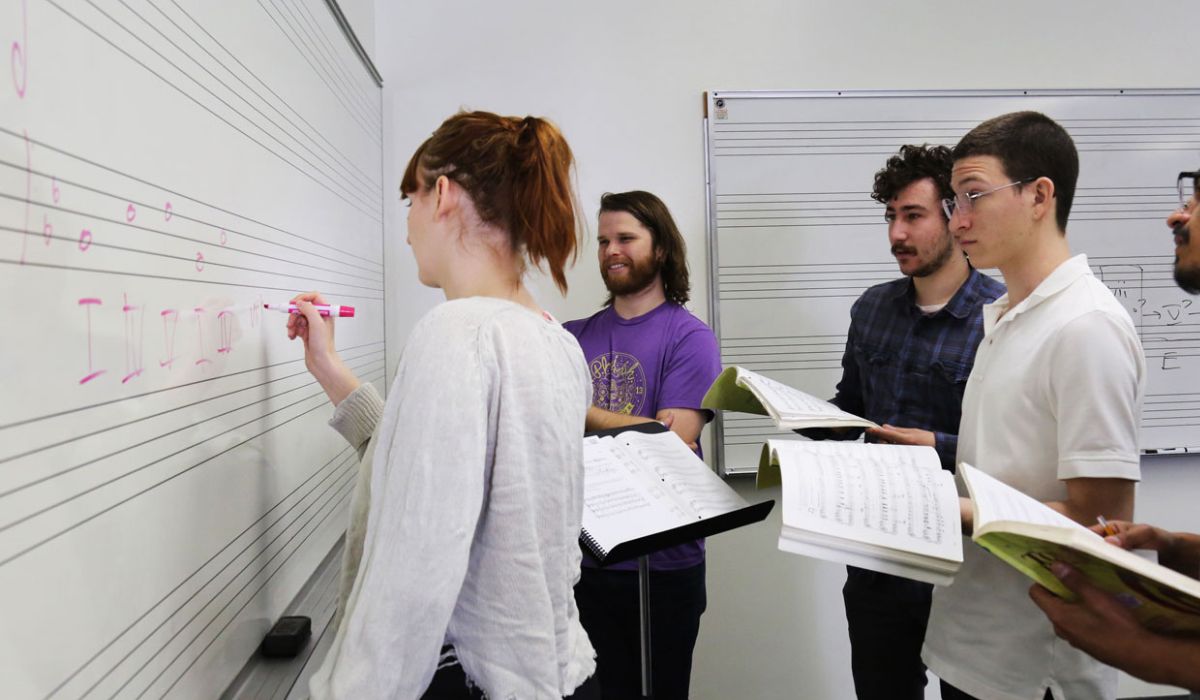Home>Production & Technology>Musician>How To Credit A Backup Musician On An Album If You Dont Know Their Name


Musician
How To Credit A Backup Musician On An Album If You Dont Know Their Name
Published: January 28, 2024
Learn how to properly credit a backup musician on an album, even if you don't know their name. Find out the essential steps to give credit where it's due.
(Many of the links in this article redirect to a specific reviewed product. Your purchase of these products through affiliate links helps to generate commission for AudioLover.com, at no extra cost. Learn more)
Table of Contents
- Introduction
- Importance of Crediting Backup Musicians
- Challenges in Identifying Backup Musicians
- Strategies for Crediting Unknown Backup Musicians
- Method 1: Researching and Determining the Backup Musician’s Identity
- Method 2: Acknowledging the Contribution Without Knowing the Name
- Method 3: Offering Proper Credit When the Musician Cannot be Identified
- Ethical Considerations in Crediting Backup Musicians
- Conclusion
Introduction
Credit is a vital aspect of the music industry, allowing musicians and creatives to be recognized for their contributions. When it comes to albums, the main artist or band is typically given the spotlight, but we must not forget the valuable role of backup musicians. These talented individuals play a significant part in shaping the overall sound and vibe of a recording, often adding depth and complexity to the music.
However, there are instances where the identity of backup musicians may be unknown or forgotten. This can be due to various reasons such as multiple sessions, limited documentation, or even changes in band lineups. It is crucial to ensure that these musicians receive the credit they deserve, not only from a legal standpoint but also out of respect for their artistic contributions.
In this article, we will explore the importance of crediting backup musicians on albums, the challenges that can arise in identifying them, and strategies to provide proper credit even when their names are unknown. We will delve into ethical considerations and offer solutions that uphold the integrity of the music industry.
Importance of Crediting Backup Musicians
Crediting backup musicians is not only a matter of fairness, but it also acknowledges their invaluable contributions to the artistic process. These talented individuals often bring unique skills, expertise, and musicality to a recording. Their performances can elevate a song, adding harmonies, solos, or rhythm sections that enhance the overall sound.
By giving credit to backup musicians, the music industry recognizes their talent and craftsmanship. This recognition is important for their professional growth and reputation. It also serves as a testament to their skills, opening up opportunities for future collaborations and projects.
Moreover, crediting backup musicians fosters a sense of respect and gratitude within the music community. It acknowledges the collaborative nature of music-making and the collective effort that goes into creating a compelling recording. By honoring their contributions, we ensure that backup musicians are not overshadowed, and their artistic efforts are duly acknowledged and celebrated.
From a legal standpoint, giving credit to backup musicians is essential to prevent copyright and ownership disputes. Properly crediting everyone involved in a recording ensures that all parties receive the recognition and financial compensation they are entitled to. It helps establish a transparent and fair system in the music industry, protecting the rights of musicians.
Additionally, crediting backup musicians can positively impact the listening experience for fans and music enthusiasts. When fans are aware of the individuals who were involved in creating a piece of music, they can develop a deeper appreciation for the richness and intricacies of the recording. Knowing the names of the backup musicians can also facilitate connections between artists and their fans, fostering a stronger sense of community and engagement.
Challenges in Identifying Backup Musicians
Identifying backup musicians can be a daunting task, especially in situations where their names have been overlooked or forgotten. Several challenges can arise when trying to credit these artists in album releases:
- Lack of documentation: In some cases, the recording process may not have been adequately documented, making it difficult to track down the names of backup musicians. This can occur due to time constraints, informal recording sessions, or inadequate record-keeping practices.
- Multiple sessions: A single album may involve multiple recording sessions, each featuring different backup musicians. In such cases, it can be challenging to identify which musicians played on specific tracks unless meticulous notes were taken during the recording process.
- Changes in lineups: Bands and artists often go through lineup changes, with musicians joining or departing at various points. When a backup musician’s involvement occurs during a transitional period, their contribution may not be properly credited if the lineup change is not well-documented.
- Uncredited sessions: In certain instances, backup musicians may have performed on a recording without receiving proper credit. This can occur due to oversight, disputes, or even intentional omissions, leading to a lack of recognition for their contributions.
- Time constraints: The hustle and bustle of the music industry can sometimes result in oversights when it comes to documenting and crediting backup musicians. Producers and artists may prioritize meeting deadlines and releasing albums, which can inadvertently lead to overlooking the proper identification and acknowledgment of backup musicians.
These challenges highlight the need for proactive and meticulous documentation during the recording process. By keeping detailed records, including session notes, musician contract agreements, and communication with backup musicians, it becomes easier to credit them accurately in album releases.
Strategies for Crediting Unknown Backup Musicians
When faced with the challenge of crediting unknown backup musicians on an album, there are several strategies that can be employed to ensure proper acknowledgment of their contributions:
- Method 1: Researching and Determining the Backup Musician’s Identity: The first approach is to conduct thorough research and try to identify the unknown backup musicians. This can involve contacting the recording engineer, producer, or other people involved in the recording process who may have information about the musicians. Online platforms and forums dedicated to session musicians can also be valuable resources for gathering information. By piecing together available clues and information, it may be possible to determine the identity of the backup musicians and credit them appropriately.
- Method 2: Acknowledging the Contribution Without Knowing the Name: In cases where the backup musician’s identity remains unknown despite extensive research, it is still essential to acknowledge their contribution. One way to handle this is by crediting them as an “unknown” or “uncredited” musician in the album liner notes or digital album description. This approach ensures that their role is recognized, even if their name cannot be identified.
- Method 3: Offering Proper Credit When the Musician Cannot be Identified: If all efforts to determine the backup musician’s identity prove unsuccessful, it is crucial to provide proper credit based on their contribution. This can include acknowledging their instrument or role in the album credits, such as “additional instrumentation” or “backup vocals.” While it may not provide specific recognition, it acknowledges that someone played a significant role in bringing the music to life.
Regardless of the method chosen, it is important to communicate openly and transparently with the backup musicians involved. This allows them to be aware of the efforts made to credit them and helps maintain positive relationships within the music community.
Furthermore, it is beneficial to establish clear guidelines and practices within the recording process to minimize the chances of unidentified backup musicians in the future. This can include maintaining detailed session notes, obtaining signed contracts, and ensuring proper communication and documentation throughout the creative and recording process.
By employing these strategies, we can navigate the challenges of crediting unknown backup musicians and honor their contributions to the artistic endeavor.
Method 1: Researching and Determining the Backup Musician’s Identity
When faced with the task of crediting unknown backup musicians on an album, one of the primary approaches is to engage in thorough research to determine their identity. Although it can be a challenging and time-consuming process, diligent investigation can yield positive results and ensure the proper recognition of these talented individuals.
Here are some steps to follow when utilizing this method:
- Consult recording personnel: Reach out to the recording engineer, producer, or other individuals involved in the recording process. These professionals may have valuable information about the session musicians, including their names or contact details. They may also possess session notes or other documentation that can help in determining the musicians’ identities.
- Utilize online resources: Take advantage of online platforms and forums dedicated to session musicians. These communities often provide a wealth of information and insights, and members may have knowledge about specific recording sessions or unknown musicians. Engaging with these communities can lead to connections and valuable leads regarding the backup musicians in question.
- Conduct interviews: If possible, try to reach out to the main artists or band members who worked on the recording. They may have memories or insights about the backup musicians’ involvement. Interviews can help extract valuable details that can lead to identifying the unknown musicians.
- Review session documentation: Examine any available session documentation, including contracts, invoices, or studio logs. These records may contain information about the musicians who participated in the recording sessions. By carefully reviewing these documents, you may uncover clues that can aid in identifying the backup musicians.
- Collaborate with music libraries: Consult music libraries or archives that specialize in recording session information. These repositories may have extensive databases or records of musicians who have played on various albums. By exploring these resources, you may find information that matches the backup musicians involved in your recording.
It is crucial to approach this research process with patience and dedication. Rolling up your sleeves and delving into the available resources can ultimately lead to identifying the backup musicians and providing them with the credit they deserve.
Remember, communication with the backup musicians is essential throughout this process. If their identities are successfully determined, make sure to inform them and obtain their consent for proper credit. Maintaining open and transparent communication helps foster positive relationships within the music community.
Overall, conducting extensive research is a powerful method for identifying backup musicians and ensuring their contributions are accurately acknowledged in album credits. By investing time and effort into determining their identities, you uphold the integrity of the music industry and give these musicians the recognition they deserve.
Method 2: Acknowledging the Contribution Without Knowing the Name
There may be instances where diligent research and investigation do not lead to the identification of backup musicians involved in a recording. In such cases, it is crucial to acknowledge their contribution, even if their names remain unknown. This approach ensures that their role in the creative process is recognized and respected.
Here are some strategies to employ when using this method:
- Credit them as “unknown” or “uncredited”: In the album liner notes, digital album description, or accompanying promotional materials, explicitly state that certain backup musicians are unknown or uncredited. By including this acknowledgment, you indicate that there were additional contributors to the recording, even if their names could not be determined.
- Highlight their instrument or role: If the backup musician’s identity is uncertain, focus on acknowledging their instrumental contribution or role in the album. For example, credit them as “uncredited guitarist” or “unidentified backup vocalist.” This gives the listener insight into the specific aspect of the music that the unknown musician added to the recording.
- Provide context and appreciation: Alongside the acknowledgment, express gratitude and appreciation for the backup musicians’ contributions to the album. This gesture not only takes into account their efforts but also demonstrates respect for their skills and dedication to their craft.
- Engage with the music community: Share information about the unidentified backup musicians with online platforms, forums, or communities dedicated to session musicians. By crowdsourcing knowledge and insights, there is a chance that someone within the music community may be able to shed light on the musicians’ identities.
- Encourage communication: While acknowledging the unknown backup musicians, make it clear that if anyone can provide information about their identities, they are encouraged to come forward. This can create opportunities for collaboration and establish connections between the artists, fans, and the music community.
By implementing these strategies, you ensure that the contributions of unknown backup musicians are appropriately recognized and appreciated. While their names may remain a mystery, their artistic contributions are given the acknowledgment they deserve in the album credits.
Remember, maintaining transparency and communication is vital throughout this process. If, by chance, the identities of the backup musicians are later discovered, make an effort to update the credits and give them proper recognition, fostering an environment of fairness and integrity in the music industry.
Overall, even in circumstances where the names of backup musicians are unknown, it is essential to acknowledge their contribution and honor their artistic efforts in order to maintain a culture of respect and recognition within the music community.
Method 3: Offering Proper Credit When the Musician Cannot be Identified
In situations where exhaustive research and efforts to determine the identity of backup musicians on an album have been unsuccessful, it is still crucial to provide proper credit for their contribution. Although their names may remain unknown, there are strategies that can be employed to offer recognition and acknowledgment for their artistic efforts.
Consider the following approaches when using this method:
- Acknowledge their instrument or role: Even if their names cannot be determined, credit the backup musicians based on their instrumental contribution or role in the album. For example, include credits such as “unidentified guitarist” or “unnamed backup vocalist.” This ensures that their specific contributions are recognized, despite their identities remaining undisclosed.
- Include a note explaining the situation: In the album liner notes or digital album description, provide an explanation that backup musicians could not be identified despite best efforts. By transparently acknowledging the situation, listeners and fans will understand the limitations encountered in giving specific credit while still acknowledging the presence of additional musicians on the recording.
- Show appreciation for their contribution: Express gratitude and appreciation for the backup musicians’ creative input in the album. By acknowledging their efforts and the impact they had on the music, you highlight the value they brought to the recording, regardless of their anonymity.
- Offer future opportunities for recognition: Make it known that if the backup musicians’ identities are later discovered or if they come forward themselves, their names will be properly credited and recognized. Encourage them to reach out so that in the future, they can receive the acknowledgment they deserve.
- Consider collaborating on future projects: If the opportunity presents itself, consider working with the unidentified backup musicians on future recordings or projects. By fostering continued collaboration, it allows for the building of relationships and the potential for giving proper recognition to their talent.
By utilizing these strategies, you demonstrate respect for the contributions of backup musicians, even when their identities cannot be determined. While it is essential to honor their involvement, ongoing efforts should be made to uncover their names and give them the credit they deserve if their identities are later revealed.
Transparency and communication play a significant role in this method as well. By setting the precedent of valuing the contributions of backup musicians, you encourage a culture of fairness and recognition within the music industry.
Remember, the goal is to provide for the proper acknowledgment of the backup musicians’ contributions, acknowledging their presence and impact on the music, even if their names remain undisclosed.
Overall, employing this method ensures that the artistic efforts of backup musicians are recognized, preserving the integrity of the creative process and upholding respect for their role in the music industry.
Ethical Considerations in Crediting Backup Musicians
Crediting backup musicians on an album is not only a matter of legality but also an ethical imperative that upholds fairness and respect within the music industry. When navigating the process of giving proper credit, it is essential to consider the following ethical considerations:
Recognition and Fairness: Ensuring that backup musicians receive proper credit is a fundamental aspect of recognizing their creative contributions. By acknowledging their involvement, talents, and artistic input, we promote fairness in the distribution of recognition, ensuring that all individuals who contribute to the music are acknowledged for their efforts.
Respecting Intellectual Property: Crediting backup musicians is an ethical responsibility that upholds the principles of intellectual property rights. It affirms the notion that each individual’s work deserves recognition and protection. By accurately crediting backup musicians, we respect their intellectual property and acknowledge their rights as creators.
Transparency and Trust: Properly crediting backup musicians fosters transparency and trust within the music industry. It communicates a commitment to honesty and integrity, ensuring that all individuals involved in the creative process receive the recognition they deserve. This transparency builds trust among artists, record labels, and the wider music community.
Collaborative Spirit: Acknowledging backup musicians provides visibility to the collaborative nature of music creation. It recognizes the valuable contributions made by these musicians in shaping the overall sound and artistic vision of the recording. By highlighting the collaborative spirit, we promote a culture of mutual respect and appreciation among artists, fostering an environment conducive to creative collaboration and innovation.
Professional Growth and Opportunities: Crediting backup musicians not only benefits them personally but also contributes to their professional growth. By acknowledging their role, they gain visibility in the industry, which can lead to future opportunities, collaborations, and advancements in their careers. Providing proper credit helps in building their reputation and establishing connections within the music community.
Preserving Music History: Properly crediting backup musicians ensures that their contributions are acknowledged and documented for historical purposes. It allows future generations to recognize the diverse talents and influences that shaped the music they enjoy. By preserving this information, we contribute to a more comprehensive understanding of music history and its evolution.
With these ethical considerations in mind, it is important to approach the process of crediting backup musicians with integrity, ensuring that their contributions are recognized and respected. By doing so, we uphold the values of fairness, transparency, and collaboration within the music industry.
Conclusion
Crediting backup musicians on albums is a crucial aspect of the music industry, ensuring fairness, recognition, and respect for their artistic contributions. Despite the challenges that may arise in identifying these musicians, there are strategies available to provide proper credit and acknowledgment.
We have explored the importance of crediting backup musicians, recognizing the valuable role they play in shaping the overall sound and vibe of a recording. By acknowledging their contributions, we not only demonstrate fairness but also foster a sense of collaboration and appreciation within the music community.
The challenges in identifying backup musicians may arise due to factors such as limited documentation, multiple recording sessions, lineup changes, uncredited sessions, or time constraints. However, through thorough research, collaborative efforts, and transparency, we can strive to determine their identities and ensure accurate credits.
There are times, though, when backup musicians remain unknown despite exhaustive efforts. In such cases, it is important to provide proper credit based on their contribution, acknowledging their instrument or role in the album. By doing so, we honor their artistic efforts and maintain the integrity of the music industry.
Throughout this process, it is crucial to consider the ethical implications. Crediting backup musicians upholds fairness, respects intellectual property, fosters transparency and trust, promotes collaboration, supports professional growth, and preserves music history. By recognizing these ethical considerations, we establish a culture of integrity and respect within the music industry.
In conclusion, crediting backup musicians is an essential aspect of album production. It ensures that these talented individuals receive the recognition they deserve and helps to build a supportive and collaborative music community. Through diligent research, acknowledgment of unknown contributors, and proper credit practices, we can uphold the integrity, fairness, and transparency in the music industry, ultimately enriching the overall listening experience for fans and musicians alike.











